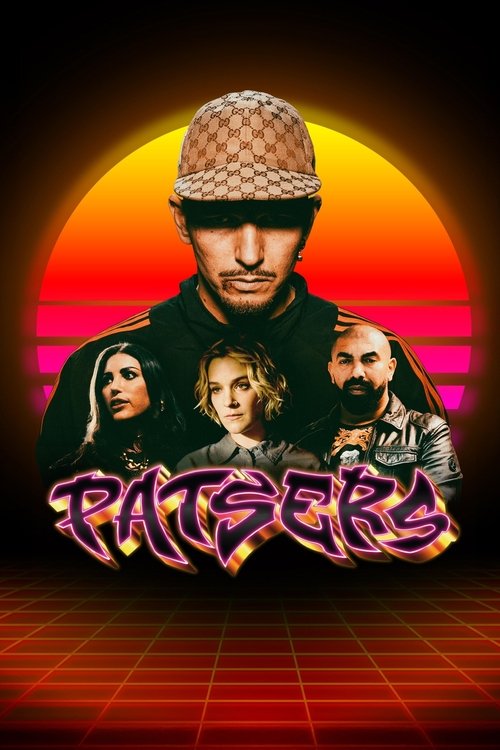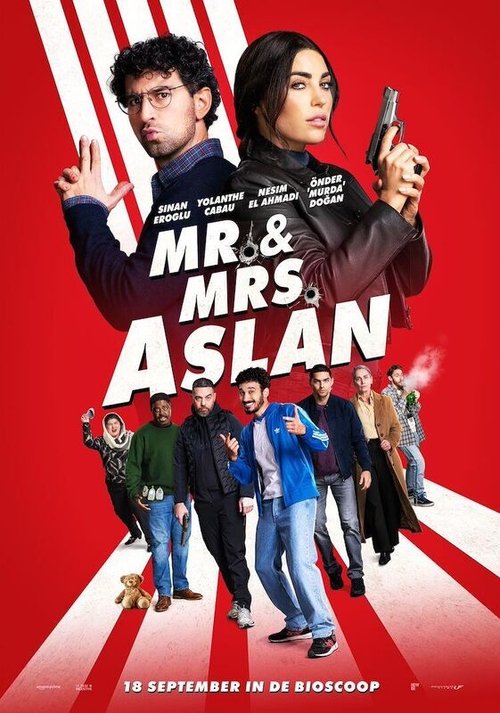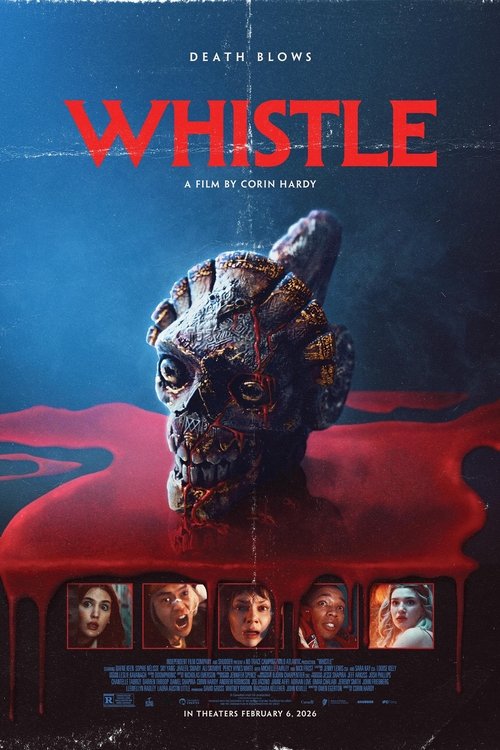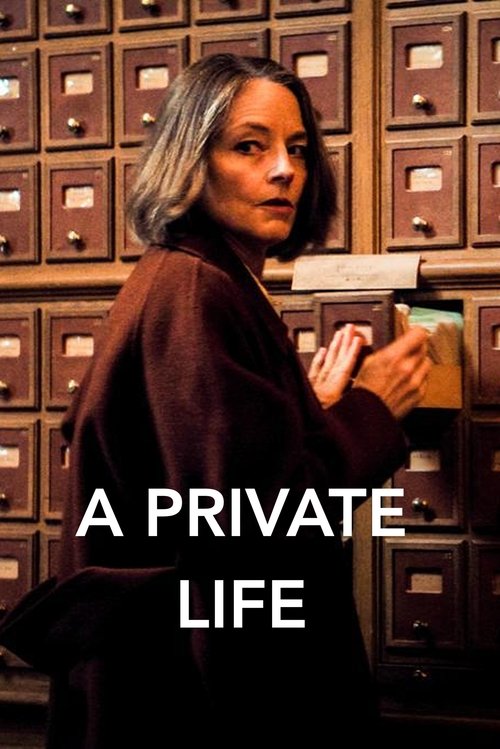
Ask Your Own Question
What is the plot?
Sergeant Lloyd Hopkins works homicide for the Los Angeles Police Department and arrives at the film's opening as a detective whose arrest numbers impress while his contempt for rules frustrates his superiors. A tip from a stranger leads him to an apartment where he discovers a woman's body, her flesh mutilated and soaked in blood. Hopkins bypasses protocol, bagging and photographing evidence alone and failing to notify his chain of command. When he goes home that night he trades barbed words with his wife; she accuses him of bringing a dangerous influence into their household and worries about the effect he is having on their eight‑year‑old daughter. Hopkins brushes past the plea and instead calls his partner Dutch Peltz to set up a surveillance. The stakeout escalates into a confrontation in which Hopkins fires on a suspect and kills him. After the shooting he flirts with a woman who had been with the suspect that night, then tells Dutch to stay at the scene and handle the aftermath while he drives the woman to her apartment.
Back at the victim's flat Hopkins rifles through personal belongings and locates classified advertisements; they point him toward Joanie Pratt, a onetime actress who now works as an escort and trafficks in drugs. Hopkins meets Pratt at a crowded café to question her and later spends the night with her, unaware that someone watches them from a distance. At the station a bloody poem sent to the first victim arrives; Hopkins reads language in the writing that convinces him this is not an isolated homicide but the work of someone who kills deliberately and repeats certain rituals. He returns home to find a short farewell from his wife: she has packed up and left with their daughter.
Hopkins answers a late call from Joanie Pratt and goes to her apartment for another liaison. While they are intimate someone observes their entry and exit, and that evening Hopkins begins diving through decades of cold case files to seek patterns. He summons Deputy Sheriff Delbert "Whitey" Haines to a greasy spoon diner and interrogates him roughly about two deaths that had been ruled suicides on Whitey's beat, both occurring on the same calendar date a year apart. Suspicious, Hopkins breaks into Whitey's apartment that night and uncovers a hidden surveillance device that recorded conversations proving Whitey's involvement in drug transactions.
Searching for new avenues, Hopkins drops by a small feminist bookstore run by Kathleen McCarthy. Kathleen, who writes and reads poetry, agrees to come to a party at Dutch's house. At the gathering she confides to Hopkins that, during high school, a group of boys attacked the poetry club she led and the boys raped her. She mentions that every year on a certain date someone sends her flowers and a poem from an anonymous admirer. Hopkins flips through her old yearbook at her suggestion and finds a photo that contains Delbert Haines alongside a boy nicknamed "Birdman," a name that also surfaces on the surveillance tapes recovered from Whitey's apartment.
When Birdman turns up dead in a motel room, murder signs mirror the initial killing: there is blood at the scene and a message written in crimson that quotes the motto of Kathleen McCarthy's high school. Hopkins takes Birdman's police file into Whitey's apartment and waits for him to arrive. Confronting Whitey as he walks in, Hopkins accuses him of using Birdman as a street-level informant for prostitution and drugs; Whitey responds brusquely, then concocts a defense about his relationship with the younger man. Hopkins, pressing the case, forces Whitey toward confession about the high school assault on Kathleen. Whitey suddenly says he has to use the bathroom; when he moves toward the door he detours to retrieve a shotgun he keeps hidden. Hopkins, anticipating treachery, is already poised and fires, killing Whitey with gunshots as Whitey lifts the weapon. Police bureaucracy follows: Hopkins answers a phone message at home informing him that Internal Affairs has suspended him and opened an investigation into his recent behavior.
Pratt telephones and begs Hopkins to come over; he obeys, intending another tryst, but when he reaches her apartment he finds Joanie dead. Her corpse sits upright in the kitchen where they had previously slept together; someone has staged the body in a grotesque pose. Hopkins alerts Dutch and returns to headquarters carrying the pieces he has gathered. He and Dutch persuade Kathleen McCarthy to examine the yearbook again to cross‑reference faces and names, but a police captain interrupts--Hopkins may be physically removed from the case now because of his suspension. While the captain rebukes him, Kathleen steals away across the street and runs to a phone booth. There she calls Bobby Franco, an old member of the same high school poetry clique, to warn him that Hopkins could harass him because of the investigation into the rapes. Hopkins follows the trail and reaches the phone booth in time to confront Franco on the sidewalk.
On the pay phone Franco initially plays coy but, when Hopkins presses, he admits two interlocking facts: he has been the anonymous sender of flowers and poems to Kathleen each year, and he has been killing people tied to that old high school torch--those who hurt her or who were connected to the past crimes. Franco is both the suitor and the murderer. The admission escalates into threat; Franco dares Hopkins to come meet him at the high school to "settle the score."
Hopkins goes to the deserted campus for the arranged meeting. Franco lures him into the high school gym where the two men trade gunfire in a tense, cramped exchange. Hopkins ducks behind bleachers and returns fire; Franco moves amid the hardwood and shadows, relying on the echoing acoustics of the gym. After repeated shots and a physical tussle Hopkins manages to disarm Franco and shove him to the floor. Franco snarls and mocks Hopkins, telling him that, as a police officer, Hopkins is bound to take him into custody. Hopkins replies that the good news is Franco is right: Hopkins is a cop, and he is supposed to arrest him. Franco smirks in triumph, expecting to be led away. Hopkins then pronounces the bad news: he tells Franco that he is suspended and no longer feels constrained by department rules. Franco's face falls, and Hopkins shoots him at close range. The fatal gunfire that kills Bobby Franco rings in the empty gym; the camera cuts away before viewers see the bullet strike. Hopkins cocks his shotgun as silence settles over the court and the frame slides to black.
Throughout these events Hopkins's personal life unravels further. His marriage is over; his daughter is living with her mother. He continues to flout procedure, collect evidence alone, and pursue suspects without official sanction. The sequence of murders that began with a mutilated woman in a blood‑soaked apartment, extended to Birdman's body in a motel, and included Joanie Pratt's apartment staging, all tie back to Bobby Franco: Franco has corresponded with Kathleen McCarthy and murdered those connected with the high school attack and the tangled underside of prostitution and drug dealing. Whitey Haines, who had long trafficked in drugs and arranged male prostitution on the side, confesses to raping Kathleen in high school before Hopkins shoots him when he fetches a shotgun. Hopkins himself fires and kills an initial stakeout suspect earlier in the story. In the end Hopkins shoots Franco at the high school gym after overpowering and disarming him, and the film closes on Hopkins cocking his weapon as the screen goes dark.
More Movies Like This
Browse All Movies →What is the ending?
Short Summary of the Ending: In "Almost Cops," Ramon and Jack team up to avenge Kevin's death. They uncover that Kevin was corrupt and working for Smits, but he wanted to become a whistleblower. Guido, on orders from his boss, killed Kevin. Ramon and Jack are captured by Guido and his team but manage to escape and apprehend Lizzy and Juan. Jack reconciles with Ramon after apologizing, and together they assemble a team to rescue Ramon when he gets captured again. They ultimately pin down the drug mafia and bring some of the culprits to justice.
Expanded Ending Narrative:
The climax of "Almost Cops" begins with Ramon and Jack discovering a shocking truth about Kevin's death. They learn that Kevin was involved with the drug mafia, working for a man named Smits. However, Kevin had a change of heart and wanted to expose the corruption, which led to his murder. This revelation complicates Ramon's understanding of his brother's life and death.
As Ramon and Jack delve deeper into the case, they are confronted by Guido, Lizzy, and Juan, who are revealed to be involved in Kevin's murder. Guido confesses that he killed Kevin on orders from his superior because Kevin wanted to become a whistleblower. This confrontation leads to Ramon and Jack being abducted by Guido's team.
During their captivity, Ramon and Jack are threatened by Guido, who intends to kill them as well. However, they manage to escape and overpower Guido's accomplices, Lizzy and Juan. Guido himself narrowly escapes, leaving a trail that could lead to the mastermind behind the operation.
A significant rift develops between Ramon and Jack when Ramon discovers that Jack had been Kevin's partner and had kept this information hidden. Feeling betrayed, Ramon decides to continue the investigation alone. This decision leads to Ramon getting captured by the culprits.
Realizing his mistake, Jack apologizes to Ramon and assembles a team of community service officers, including Moussa and Youssef, to rescue Ramon. This act of reconciliation highlights Jack's growth and newfound respect for Ramon's dedication and skills.
Together, Ramon and Jack, along with their new team, successfully track down and apprehend some of the drug mafia members. Guido is caught, and Lizzy and Juan are taken into custody. The movie concludes with Ramon and Jack having brought some justice to Kevin's memory, though the full extent of the corruption remains unresolved.
The fate of the main characters is as follows: Ramon emerges as a more confident and respected figure, having proven himself in the investigation. Jack learns to appreciate Ramon's abilities and finds redemption by making amends and working together to solve the case. Kevin's legacy is complex, revealed to be both a victim of corruption and a would-be whistleblower. Guido, Lizzy, and Juan face justice for their roles in Kevin's murder. Smits, the mastermind, remains at large, leaving room for potential sequels or further exploration of the story.
Is there a post-credit scene?
There is no evidence in the available sources that Almost Cops (2025) contains a post-credit scene. The detailed plot summaries and ending explanations focus exclusively on the main narrative's conclusion--specifically, the arrest of Richard, the resolution of Ramon and Jack's character arcs, and their decision to remain as Community Service Officers (CSOs) despite being offered promotions to CID. These sources do not mention any additional scenes, teasers, or narrative content that occur after the credits roll.
The film's ending is emotionally resonant and thematically complete: Ramon, having been freed from the weight of his father's legacy when Guido takes his necklace, finds closure by naming a rebuilt community center after his father, symbolizing a new beginning for the neighborhood's youth. Jack, initially bitter about his demotion, comes to value the direct impact he and Ramon have on their community, choosing to stay close to the streets rather than ascend into a potentially corrupt system. The villains are brought to justice, and while Yasmin's escape leaves a thread for a potential sequel, there is no indication this is addressed in a post-credit scene.
In summary, based on all available plot summaries and expert analyses, Almost Cops (2025) does not feature a post-credit scene. The story's resolution is contained within the main body of the film, and any sequel setup is implied through narrative loose ends rather than a formal post-credit sequence.
What is the relationship between Ramon and Jack in Almost Cops (2025)?
Ramon and Jack start as reluctant partners forced to work together after Jack is demoted and Ramon is brought in to replace Jack's deceased partner, Kevin, who is Ramon's half-brother. Their relationship is initially tense due to Jack hiding his connection to Kevin and their very different policing styles, but they eventually become a strong team as they pursue justice for Kevin's murder.
How does the death of Kevin impact the story in Almost Cops (2025)?
Kevin's death during a drug bust ambush is the catalyst for the entire story. It leads to Jack's demotion and the recruitment of Ramon to replace Kevin as Jack's partner. The quest to find Kevin's killer drives the plot, with Ramon and Jack uncovering secrets and confronting corruption as they seek justice.
What challenges do Ramon and Jack face while investigating the case in Almost Cops (2025)?
Ramon and Jack face jurisdictional issues, mistrust between themselves, and opposition from their superiors who challenge their investigation. They also encounter a corrupt trio who kidnap them, and the tension caused by Jack initially hiding his partnership with Kevin from Ramon complicates their collaboration.
How do Ramon and Jack's personalities and approaches to policing differ in Almost Cops (2025)?
Ramon is a serious, competent community service officer who is methodical and principled, while Jack is reckless, swaggering, and more aggressive. Jack's dive-right-in style clashes with Ramon's more cautious approach, causing friction as they try to work together.
What role do other characters play in the story of Almost Cops (2025)?
Other characters include the corrupt trio--Guido, Juan, and Lizzy--who are antagonists involved in the conspiracy behind Kevin's death. Additionally, a team including Moussa, Youssef, and other community service officers assist Jack in rescuing Ramon, highlighting the theme of teamwork and growth among the characters.
Is this family friendly?
The movie Almost Cops (2025) is not fully family-friendly and contains some elements that might be objectionable or upsetting for children or sensitive viewers. It features mild violence and mild profanity, as well as some borderline sexual humor, such as scenes involving a police officer walking around the locker room nude (though the camera avoids explicit exposure). The tone fluctuates between serious crime drama and slapstick comedy, which may be confusing or unsettling for younger audiences.
Specifically, potentially sensitive aspects include:
- Mild violence and action scenes related to crime and investigation.
- Mild profanity scattered throughout the dialogue.
- Some sexual innuendo and borderline sexual harassment jokes, though not explicit.
- Themes involving death and loss of family members, which may be emotionally heavy.
- Occasional crude humor and references that aim for an adult audience but may fall flat.
There is no explicit sex or nudity, and the violence is not intense or graphic, but the overall tone and some content are better suited for older teens and adults rather than young children or very sensitive viewers.
Does the dog die?
There is no evidence in any available plot summary, review, or detailed synopsis of Almost Cops (2025) that a dog dies or is harmed in the film. The movie centers on Ramon, a dedicated community service officer, and Jack, a demoted detective, as they investigate the murder of Ramon's half-brother Kevin and uncover police corruption. The narrative focuses on their partnership, the emotional fallout from Kevin's death, and their pursuit of justice, with key scenes involving stakeouts, confrontations with criminals, and internal police intrigue.
Ramon's daily duties include handing out fines for infractions like dog poop, indicating that dogs are part of the community backdrop, but there is no mention of any dog being injured, killed, or placed in peril as a significant plot point. The film's emotional stakes revolve entirely around human relationships--Ramon's grief and determination, Jack's guilt and recklessness, and their shared mission to honor Kevin's memory. No scene describes harm to an animal, and no reviewer or plot recap highlights such an event.
In summary, based on all available detailed sources, a dog does not die in Almost Cops (2025). The story's tension and emotional weight are carried by its human characters and their personal journeys, with no narrative or visual indication of animal harm.





































